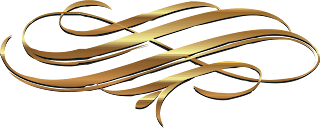“Huzza!” Toasting a New Nation, 1760-1815 Timothy Symington - Drinking toasts to the American Revolution and beyond!
Guest Post
What inspired you to write this story
To be
completely honest, I never expected that I would or could even write a book, or
even write a book about toasts. Who
would have thought? Luckily, that fact
makes the book stand out little, because who has done this before? Nobody!
I covered
how the book came about in the book’s Preface, but I am happy to explain what
happened here. When I was pursuing my
master’s degree in American History, one of the courses I had to take was the
American Revolution. In one of the
lectures, the professor read off a list of toasts given in Virginia, published
in a Rhode Island newspaper. I had never
heard toasts presented that way. I knew
about your typical wedding and event toasts, but learning about how important
they were was new to me. I discovered
that they were used as propaganda and they were their own form of literature. When it came to write a dissertation, I
decided to do it on the political toasts given in Massachusetts during the
years of the American Revolution.
Defending the thesis was successful (which deserves a toast itself, so…”Huzza!”), but I did not simply rest on my laurels. I wanted to learn more and go further with the toasts. What else did Americans drink to? Were there huge differences in the toasts given in Georgia and New York? What was said about Andrew Jackson, Aaron Burr, of George Washington after he died? Several people pushed me to consider turning my research into a book, and so I started to collect toasts from all the states between 1760 through 1815. Even after publication, I am restless and do not feel as if I am “finished.” So, I am seriously considering doing another book about the years leading up to the Civil War. I can only imagine how divisive those toasts are going to be!
Excerpt:
George Washington replaced George III as the main recipient of toasts, becoming the most toasted individual in the new nation. The King was now the enemy. Even English supporters of colonial rights, such as John Wilkes and Edmund Burke, were replaced by American military heroes. English support for the rights of the colonists, however, had not disappeared. The Virginia Gazette printed toasts the London Association made in October 1775. Association members wished for “axes and halters, at public expence, to all those who attempt to trample on the liberties of their fellow subjects, either in Great Britain or America,” and that “kings remember that they were made for their subjects, and not their subjects for them.”
The former British corset-maker Thomas Paine brilliantly explained why the colonists should no longer rely on the King to protect their liberties. His pamphlet, Common Sense, demanded that Americans free themselves of Britain’s control. Paine wrote that “One of the strongest natural proofs of the folly of hereditary right in Kings, is that nature disapproves it, otherwise she would not so frequently turn it into ridicule, by giving mankind an Ass for a Lion.” His words reached everyone in the colonies, and so he and his work were toasted: “May the INDEPENDENT principles of COMMON SENSE be confirmed throughout the United Colonies.”
Most colonies had already taken Paine’s advice to heart and declared themselves to be independent states. Members of the Virginia convention calling for a resolution for national independence gave toasts in May: “The American independent states” and “The Grand Congress of the United States, and their respected legislatures.” Washington attended a feast at the Queen’s Head Tavern in New York City, where toasts were given to the Continental Congress and the American army, and to the memory of General Richard Montgomery, killed in the disastrous invasion of Quebec in December 1775. The final toast was “to ‘Civil and religious liberty to all mankind’—mankind, that is, except Tories.” Tories, the conservative supporters of the Crown, received extra abuse in the Patriots’ toasts: “Sore Eyes to all Tories, and a Chestnut Burr for an Eye Stone.”








Comments
Post a Comment